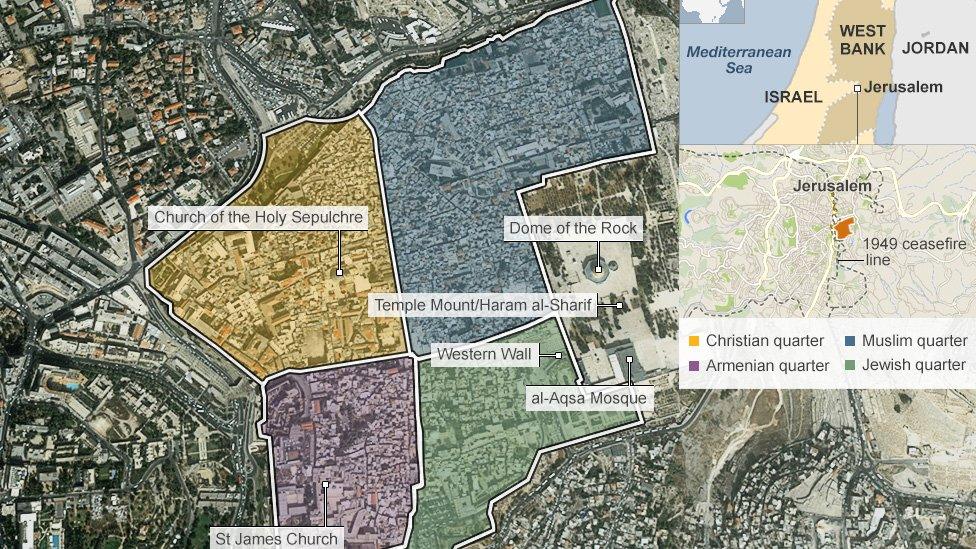Israel strikes Gaza Hamas sites after rocket attacks
- Published
'I didn't fall, they shot me'
Israel says it has targeted sites in Gaza belonging to militant group Hamas in retaliation for rocket strikes.
Israel's military said it had hit weapons sites early on Saturday. Two people died, a Gaza hospital said, bringing the deaths in Israeli strikes and gunfire over the past day to four.
Three rockets were fired at Israel from Gaza late on Friday.
Israeli-Palestinian tensions have risen since President Donald Trump recognised Jerusalem as Israel's capital.
Wednesday's decision reversed decades of US neutrality on one of the most sensitive issues between the two sides.
Israel has always regarded Jerusalem as its capital, while the Palestinians claim East Jerusalem - occupied by Israel in the 1967 war - as the capital of a future Palestinian state.
The diplomatic fallout over Mr Trump's move has continued, with Palestinian officials saying that President Mahmoud Abbas will refuse to meet US Vice-President Mike Pence later this month.
Egypt's Coptic Church has also cancelled a planned meeting, saying Mr Trump's declaration "did not take into account the feelings of millions of Arab people".
At a security conference in Bahrain, the UAE's Minister of State for Foreign Affairs Anwar Gargash said the Jerusalem announcement was "a gift to radicalism", Reuters news agency reports.
On Friday, crowds gathered in Jerusalem's Old City to protest against Mr Trump's decision
There have been fresh protests in the West Bank city of Bethlehem and in East Jerusalem.
In other developments:
Israel's air force followed a number of raids on Hamas sites on Friday with more air strikes in the early hours of Saturday, targeting weapons manufacturing sites, a weapons warehouse and a military compound, the Israel Defense Forces said
Gaza's Shifa hospital says that two bodies of Palestinians were found under the rubble of a Hamas military site bombed by Israeli planes overnight, bringing the death toll in the past 24 hours to four. Two Palestinians were also killed in clashes with Israeli troops at the Gaza border
At least 217 Palestinians were also wounded, Palestinian medics say
Of the three rockets fired at Israel, Israel's military said it had intercepted one with its Iron Dome defence system, one was found on wasteland and another landed in Sderot late on Friday. No casualties were reported
Earlier on Friday, Fathi Hammad, a senior Hamas leader, said anyone seeking to move their embassy to Jerusalem was "an enemy of the Palestinians".
Speaking before the United Nations on Friday, US ambassador Nikki Haley said the US "recognises the obvious; that Jerusalem is the capital of Israel".
She said the US continued to be "committed to achieving a lasting peace agreement", and accused the UN of bias, saying it "has outrageously been one of the world's foremost centres of hostility towards Israel".
US ambassador Nikki Haley calls UN hostile to Israel
"Israel will never be, and never should be, bullied into an agreement by the United Nations or by any collection of countries that have proven their disregard for Israel's security," Mrs Haley said.
Israel had deployed extra battalions to the West Bank in anticipation of violence after Palestinian leaders called for protests after Friday prayers.
There were protests held elsewhere on Friday against Mr Trump's announcement.
Thousands of pro-Palestinian protesters held demonstrations in Jordan, Egypt, Iraq, Turkey, Tunisia and Iran.
Further afield, protesters rallied in Malaysia, Bangladesh, Pakistan, Afghanistan, Indian-administered Kashmir and Indonesia, the world's largest Muslim-majority country.
Why does Trump's announcement matter?
Why the ancient city of Jerusalem is so important
Jerusalem is of huge importance to both Israel and the Palestinians. It contains sites sacred to the three major monotheistic faiths - Judaism, Islam and Christianity.
Israel occupied the eastern sector - previously occupied by Jordan - in 1967, and annexed it in 1980, but the move has never been recognised internationally.
Some 330,000 Palestinians live in East Jerusalem, along with about 200,000 Israeli Jews in a dozen settlements there. The settlements are considered illegal under international law, though Israel does not regard them as settlements but legitimate neighbourhoods.
According to the 1993 Israel-Palestinian peace accords, the final status of Jerusalem is meant to be discussed in the latter stages of peace talks.
The last round of talks between Israel and the Palestinians broke down in 2014 and while the US is formulating fresh proposals, Palestinian officials say Mr Trump's announcement has disqualified the US from brokering future negotiations.
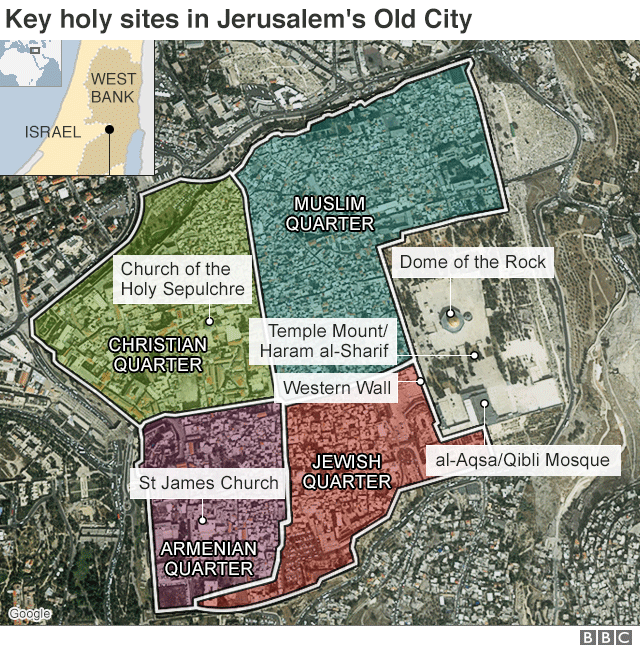
- Published8 December 2017
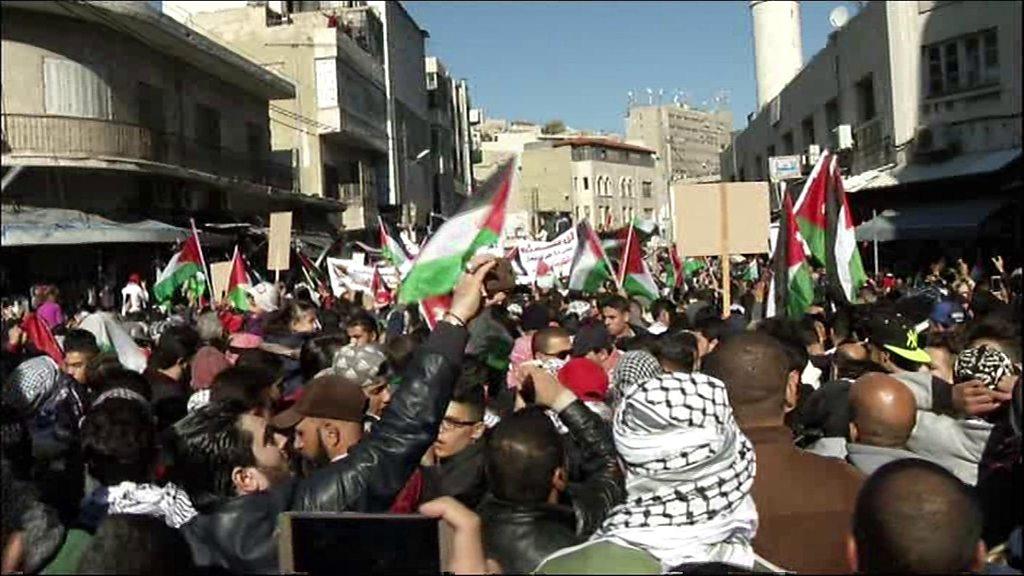
- Published8 December 2017
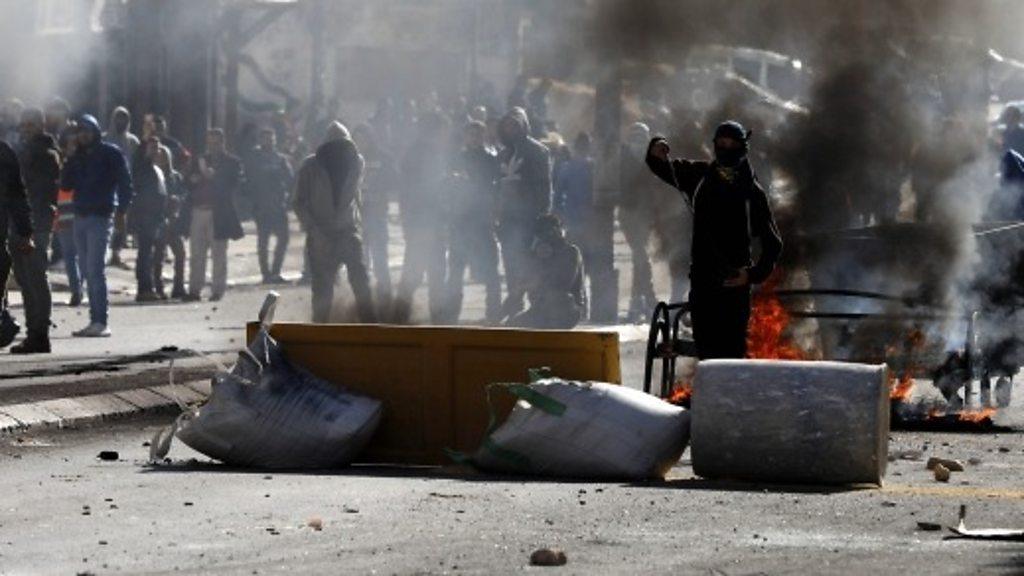
- Published7 December 2017
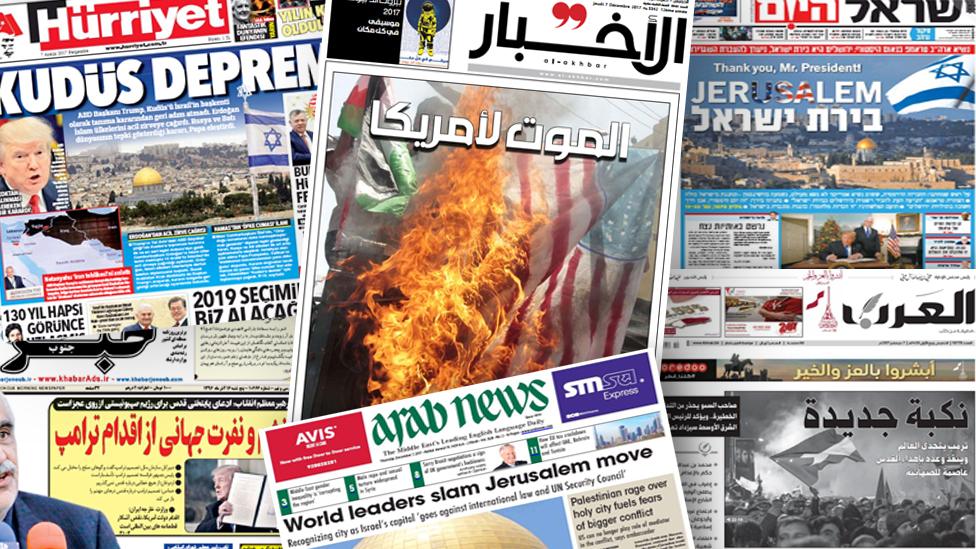
- Published7 December 2017
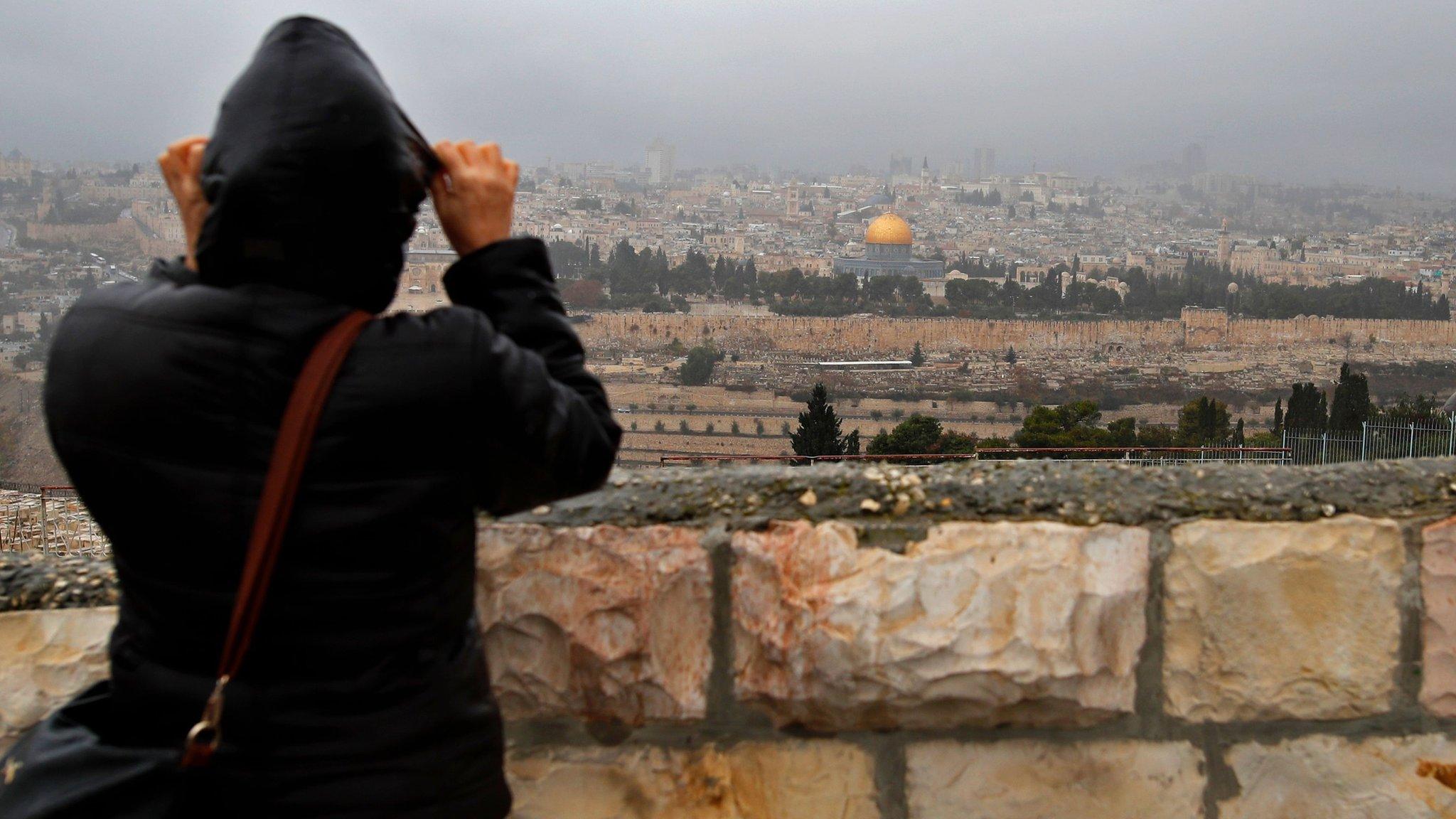
- Published6 December 2017
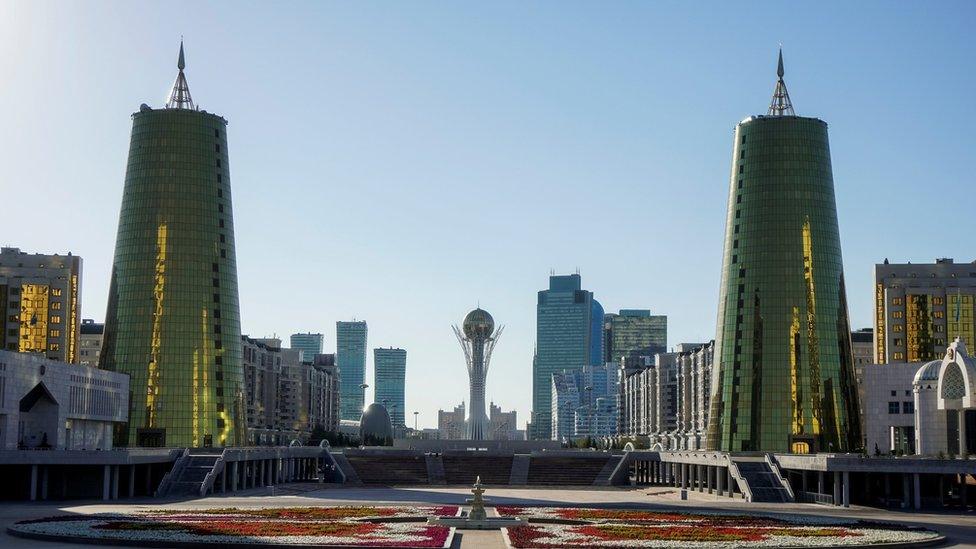
- Published14 May 2018
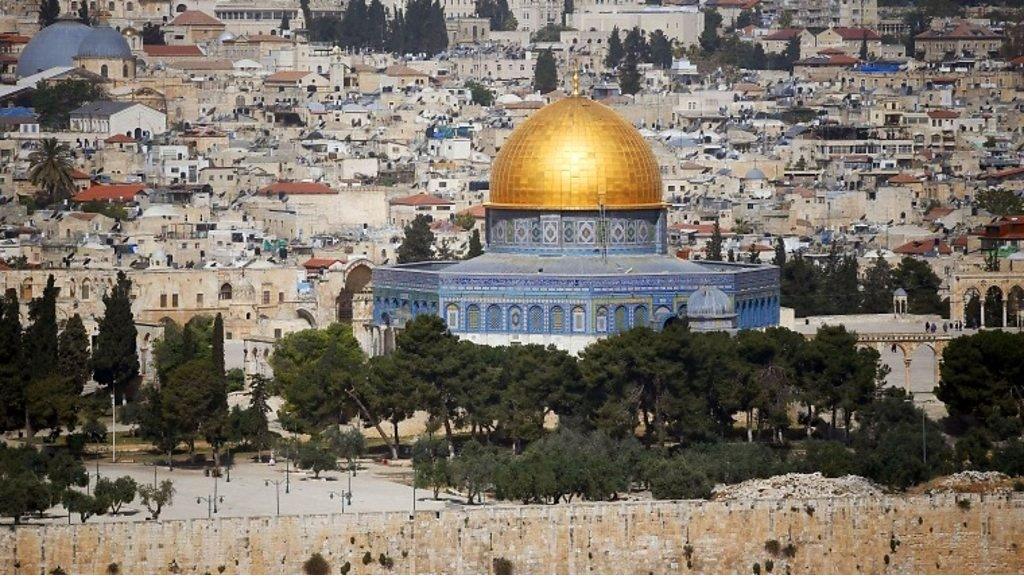
- Published30 October 2014
